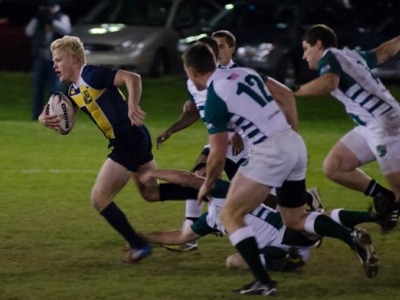The NFL Draft marks a college football players movement into the NFL and with this transition often comes a lot of discussion about whether certain players can actually be successful in the NFL. During the draft you will hear dozens of analysts speculate as to whether certain college players are ready to make the move up to the NFL. With a different style of play, a large increase in game speed, and better competition, this shift, and the handling of it, becomes a major concern for all coaches when looking at potential players.
The handling of this major change is most apparent at the quarterback position and coaches have many theories on how to handle the transition. Some coaches take the baptism by fire approach and throw their newfound quarterbacks immediately into the starting spot and hope for the best. Others believe it is best to sacrifice a few years and keep rookie quarterbacks on the bench for the beginning of their careers and allow them to learn the system and slowly adjust to being in the NFL. Both of these theories have their pros and cons but if Edmund Burke were a quarterback coach how would he handle the rookie quarterback dilemma?


 why anyone would put their life in danger, and then the thought came into my mind; how would Mill react to the riskiness of this sport. I Google searched for the information and found many articles.
why anyone would put their life in danger, and then the thought came into my mind; how would Mill react to the riskiness of this sport. I Google searched for the information and found many articles. 




You must be logged in to post a comment.